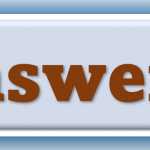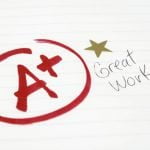Self-Efficacy Theory and Self-Regulation Theory
Self-Efficacy Theory and Self-Regulation Theory
How do you judge your ability to accomplish a goal? The concept of self-efficacy refers to beliefs you possess regarding your own capabilities to complete a task successfully. For example, some artists might rate themselves as having a high self-efficacy for painting, but having a low self-efficacy for writing. In most instances, before initiating actions and engaging in behaviors leading to goal attainment, individuals assess the amount of time and effort they are willing to spend in its pursuit. Because human beings tend to choose the road of least resistance, especially when they anticipate difficulties along the way, self-efficacy theory helps them assess their capabilities to reach personal and professional goals successfully.
By practicing principles posited by self-regulation theory, human beings are able to monitor and adjust their behaviors in order to reach personal and professional goals. The ability to choose behaviors likely to lead to goal attainment and reject behaviors likely to lead to goal failure provides individuals with effective self-management skills.
With these thoughts in mind:
Post by Day 4 a brief explanation of how self-efficacy theory (personal goal setting) contributes to self-regulation theory. Then select one theory (self-efficacy or self-regulation) and explain how that theory might be applied to complete your graduate degree. Be specific and provide examples.
Be sure to support your postings and responses with specific references to the Learning Resources.
Resources:
Stadjkovic, A. D., & Luthans, F. (1998). Social cognitive theory and self-efficacy: Going beyond traditional motivational and behavioral approaches. Organizational Dynamics, 26(4), 62-74.
Kuhl, J., Kazén, M., & Koole, S. L. (2006). Putting self-regulation theory into practice: A user’s manual. Applied Psychology: An International Review, 55(3), 408–418.
Answer preview
Self-efficacy theory entails a situation whereby an individual trusts in his or her ability to carry out the actions needed to produce specific results. It represents confidence in asserting influence over one’s motivation, behavior, and social climate (Stajkovic & Luthans, 1998). It also helps determine how best an individual executes the courses of action required to succeed in a situation or life at large (Kuhl et al., 2006). Self-regulation theory, on the other hand, involves altering one’s reaction, including emotions, actions, and feelings. For instance, it helps students manage their emotions, behaviors, and thoughts to succeed in their learning experience.
476 words


